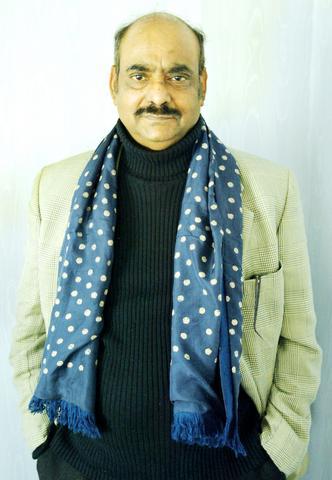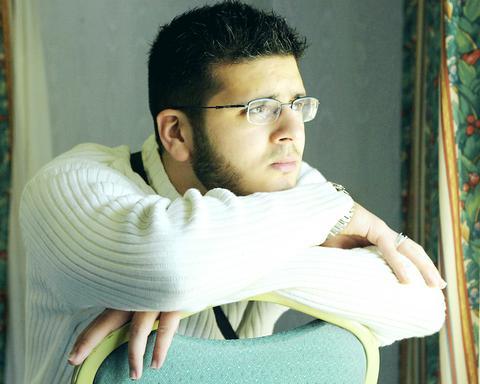As the battle for public opinion over the detentions at Guantanamo Bay, Cuba, heats up, relatives of three of the prisoners there began a tour Sunday of New York and Washington to draw attention to the detainees' situation.
Aymen Sassi, a 21-year-old student from Venissieux, a suburb of Lyon, France, said in an interview Sunday that his older brother's arrest and detention at the Guantanamo naval base had devastated his family. "My father, his whole world collapsed when he heard the news," Sassi said through a translator. Sassi's brother, Nizar, 23, is one of about 650 prisoners held at the base, some for more than two years.
Sassi said that he did not believe that his brother traveled to the Pakistan-Afghanistan area, where he was arrested, to get involved in the region's politics or fighting. Nizar had just purchased a new car and was intending to leave his job with the municipal government to open a restaurant, he said.

His brother "was a normal guy who liked to go nightclubbing," Aymen Sassi said, and had spoken of getting married and settling down. He was in the region because he loved to travel and had already spent considerable time moving throughout Europe, he said.
But Nizar Sassi's restlessness was connected to a need to understand his Arabic heritage and Muslim religion, his brother said. He wanted to learn formal Arabic, rather than the Tunisian version his parents spoke, Sassi said.
The lives of almost all of the prisoners at Guantanamo have received little attention, even as their detention has provoked debate in America and abroad about whether there is any proper legal foundation for it. Anthony Romero, the executive director of the American Civil Liberties Union, which arranged the relatives' visit to the US, said that in addition to the legal challenges pending in the Supreme Court, "We want to put a face to these people."

PHOTO: NY TIMES
The delegation also includes Rabiye Kurnaz, the mother of Murat Kurnaz, a 23-year-old Turkish citizen and German resident; and Azmat Begg, the father of Moazzam Begg, a 36-year-old Briton who has been listed as eligible to face a military tribunal for war crimes.
All three said they were not asserting that their relatives had not committed any crimes. They said they were sad and angry that the detainees had been held for so long without being charged.
The delegation will try to meet with members of the US Congress in the next few days, Romero said.
The military brought charges against detainees for the first time last month, charging two with involvement in war crimes and terrorism. The charges mean that they may soon face a US military commission, the first such proceedings since the end of World War II.
In recent weeks, officials of the US President George W. Bush administration have tried to answer their critics more forcefully. The Defense Secretary, Donald Rumsfeld, and Alberto Gonzales, the White House counsel, have said in speeches that the critics have a basic misunderstanding of the situation when they complain of people being held indefinitely without being charged. They say the detentions are justified because America is at war, and therefore there is no need to charge enemy fighters to keep them imprisoned.
Rumsfeld and Gonzales have described about a dozen of the detainees as senior operatives of al-Qaeda.
But critics say that many, if not most, of the Guantanamo detainees are guilty of little beyond the bad luck to have been caught up in the chaotic aftermath of war. Most were captured in Pakistan or Afghanistan after the fall of the Taliban government.
But even as the government moves toward military tribunals, it has released more than 80 detainees to other countries.
Kurnaz said that the German authorities telephoned her in December, 2001, with the news that her son was a prisoner of the Americans. In one letter sent to her through the International Committee of the Red Cross, Murat wrote, "Don't worry, I am fine and I didn't do anything wrong." Although he was gradually becoming more religious than his parents, Kurnaz said, he had no interest in politics or in any extreme form of Islam.
Begg, a retired banker from Birmingham, said he did not know what his son might have done in Afghanistan or in Pakistan, but insisted that he should face a British court, not a military tribunal.

March 2 to March 8 Gunfire rang out along the shore of the frontline island of Lieyu (烈嶼) on a foggy afternoon on March 7, 1987. By the time it was over, about 20 unarmed Vietnamese refugees — men, women, elderly and children — were dead. They were hastily buried, followed by decades of silence. Months later, opposition politicians and journalists tried to uncover what had happened, but conflicting accounts only deepened the confusion. One version suggested that government troops had mistakenly killed their own operatives attempting to return home from Vietnam. The military maintained that the

Taiwan has next to no political engagement in Myanmar, either with the ruling military junta nor the dozens of armed groups who’ve in the last five years taken over around two-thirds of the nation’s territory in a sprawling, patchwork civil war. But early last month, the leader of one relatively minor Burmese revolutionary faction, General Nerdah Bomya, who is also an alleged war criminal, made a low key visit to Taipei, where he met with a member of President William Lai’s (賴清德) staff, a retired Taiwanese military official and several academics. “I feel like Taiwan is a good example of

Jacques Poissant’s suffering stopped the day he asked his daughter if it would be “cowardly to ask to be helped to die.” The retired Canadian insurance adviser was 93, and “was wasting away” after a long battle with prostate cancer. “He no longer had any zest for life,” Josee Poissant said. Last year her mother made the same choice at 96 when she realized she would not be getting out of hospital. She died surrounded by her children and their partners listening to the music she loved. “She was at peace. She sang until she went to sleep.” Josee Poissant remembers it as a beautiful

Before the last section of the round-the-island railway was electrified, one old blue train still chugged back and forth between Pingtung County’s Fangliao (枋寮) and Taitung (台東) stations once a day. It was so slow, was so hot (it had no air conditioning) and covered such a short distance, that the low fare still failed to attract many riders. This relic of the past was finally retired when the South Link Line was fully electrified on Dec. 23, 2020. A wave of nostalgia surrounded the termination of the Ordinary Train service, as these train carriages had been in use for decades